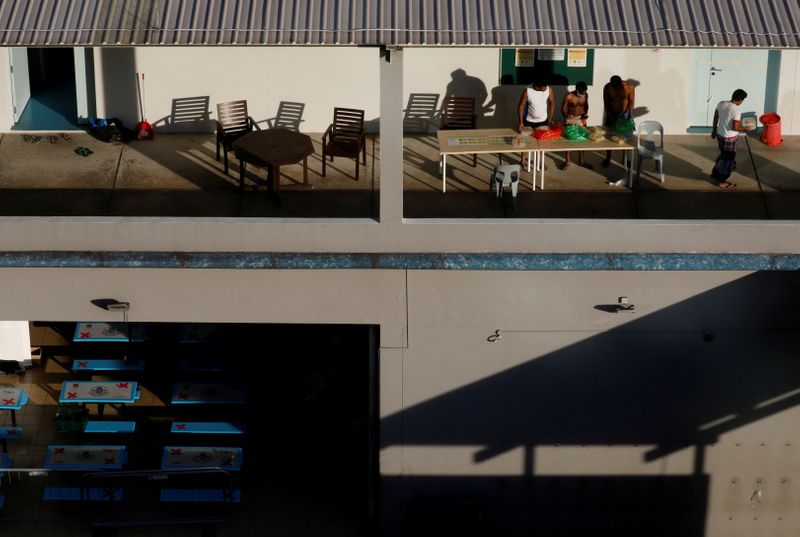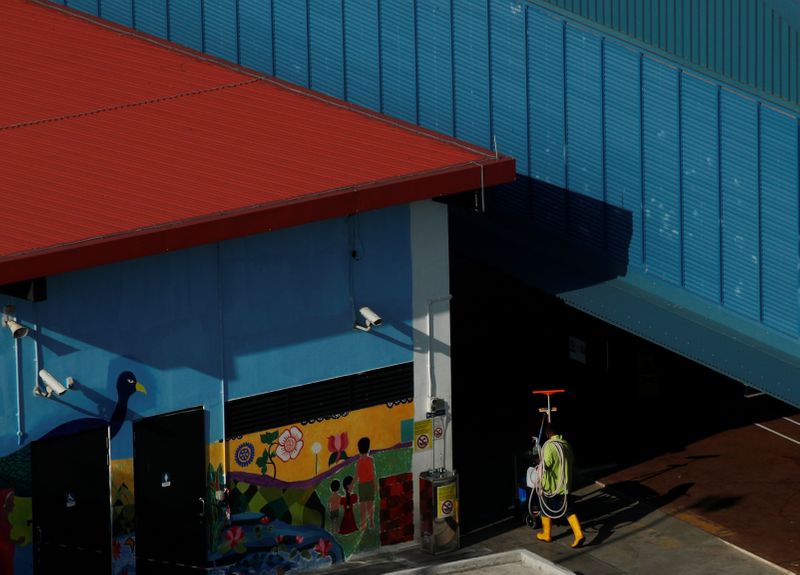SINGAPORE (Reuters) - Nearly half of Singapore's migrant workers residing in dormitories have had COVID-19, according to the government, indicating the virus spread much more widely among those living in these accommodations than the official case tally shows.
Singapore has reported more than 58,000 COVID-19 cases since the pandemic started, with the vast majority occurring in the cramped dormitories that house mainly South Asian low-wage workers.
But the government said on Tuesday that while a total of 54,505 workers had tested positive for the virus using polymerase chain reaction (PCR) tests as of Sunday, an additional 98,289 had tested positive using serology tests. PCR tests diagnose current or new infections and serology tests indicate past infection.
The prevalence rate of COVID-19 in the dormitories is currently 47%, including the serology test results, the manpower ministry said in a statement. Singapore includes only positive results from confirmatory PCR tests in its case count as per the World Health Organization's criterion.
Outside the dormitories, the virus's prevalence rate in Singapore was about 0.25% based on a serology sampling study of 1,600 people, according to a health ministry official.
For every COVID-19 infection in the dormitories detected through PCR testing, another 1.8 cases were untested and undetected at the time, and were identified subsequently only through serology testing.
"This is not surprising as many migrant workers did not have any symptoms, and thus would not have sought treatment and received a PCR test in the process," the ministry said.
Authorities are still completing serology tests for about 65,000 workers living in dormitories who have not taken them before.
While most countries only do serology testing on a sampling basis to estimate the prevalence of infections in a population, Singapore is conducting them on all the migrant workers living in the dormitories.
Singapore has reported only a handful of local cases of COVID-19 over the last two months. It had the world's lowest fatality rate from the virus with 29 deaths.

Singapore became on Monday the first Asian country to approve Pfizer-BioNTech's coronavirus vaccine and said it expects to start receiving shots by the end of the year.
